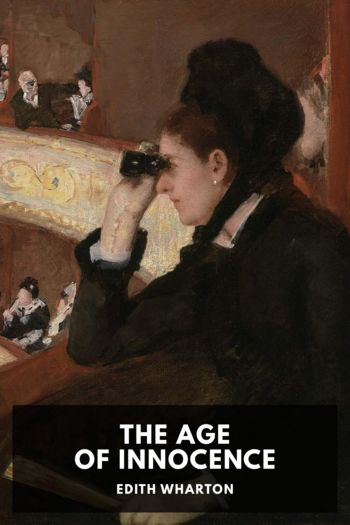The House of Mirth, Edith Wharton [series like harry potter txt] 📗

- Author: Edith Wharton
Book online «The House of Mirth, Edith Wharton [series like harry potter txt] 📗». Author Edith Wharton
She had arranged to break the length of her stay with her new friends by one or two visits to other acquaintances as recent; and on her return from this somewhat depressing excursion she was immediately conscious that Mrs. Dorset’s influence was still in the air. There had been another exchange of visits, a tea at a country-club, an encounter at a hunt ball; there was even a rumour of an approaching dinner, which Mattie Gormer, with an unnatural effort at discretion, tried to smuggle out of the conversation whenever Miss Bart took part in it.
The latter had already planned to return to town after a farewell Sunday with her friends; and, with Gerty Farish’s aid, had discovered a small private hotel where she might establish herself for the winter. The hotel being on the edge of a fashionable neighbourhood, the price of the few square feet she was to occupy was considerably in excess of her means; but she found a justification for her dislike of poorer quarters in the argument that, at this particular juncture, it was of the utmost importance to keep up a show of prosperity. In reality, it was impossible for her, while she had the means to pay her way for a week ahead, to lapse into a form of existence like Gerty Farish’s. She had never been so near the brink of insolvency; but she could at least manage to meet her weekly hotel bill, and having settled the heaviest of her previous debts out of the money she had received from Trenor, she had a still fair margin of credit to go upon. The situation, however, was not agreeable enough to lull her to complete unconsciousness of its insecurity. Her rooms, with their cramped outlook down a sallow vista of brick walls and fire-escapes, her lonely meals in the dark restaurant with its surcharged ceiling and haunting smell of coffee—all these material discomforts, which were yet to be accounted as so many privileges soon to be withdrawn, kept constantly before her the disadvantages of her state; and her mind reverted the more insistently to Mrs. Fisher’s counsels. Beat about the question as she would, she knew the outcome of it was that she must try to marry Rosedale; and in this conviction she was fortified by an unexpected visit from George Dorset.
She found him, on the first Sunday after her return to town, pacing her narrow sitting-room to the imminent peril of the few knickknacks with which she had tried to disguise its plush exuberances; but the sight of her seemed to quiet him, and he said meekly that he hadn’t come to bother her—that he asked only to be allowed to sit for half an hour and talk of anything she liked. In reality, as she knew, he had but one subject: himself and his wretchedness; and it was the need of her sympathy that had drawn him back. But he began with a pretence of questioning her about herself, and as she replied, she saw that, for the first time, a faint realization of her plight penetrated the dense surface of his self-absorption. Was it possible that her old beast of an aunt had actually cut her off? That she was living alone like this because there was no one else for her to go to, and that she really hadn’t more than enough to keep alive on till the wretched little legacy was paid? The fibres of sympathy were nearly atrophied in him, but he was suffering so intensely that he had a faint glimpse of what other sufferings might mean—and, as she perceived, an almost simultaneous perception of the way in which her particular misfortunes might serve him.
When at length she dismissed him, on the pretext that she must dress for dinner, he lingered entreatingly on the threshold to blurt out: “It’s been such a comfort—do say you’ll let me see you again—” But to this direct appeal it was impossible to give an assent; and she said with friendly decisiveness: “I’m sorry—but you know why I can’t.”
He coloured to the eyes, pushed the door shut, and stood before her embarrassed but insistent. “I know how you might, if you would—if things were different—and it lies with you to make them so. It’s just a word to say, and you put me out of my misery!”
Their eyes met, and for a second she trembled again with the nearness of the temptation. “You’re mistaken; I know nothing; I saw nothing,” she exclaimed, striving, by sheer force of reiteration, to build a barrier between herself and her peril; and as he turned away, groaning out “You sacrifice us both,” she continued to repeat, as if it were a charm: “I know nothing—absolutely nothing.”
Lily had seen little of Rosedale since her illuminating talk with Mrs. Fisher, but on the two or three occasions when they had met she was conscious of having distinctly advanced in his favour. There could be no doubt that he admired her as much as ever, and she believed it rested with herself to raise his admiration to the point where it should bear down the lingering counsels of expediency. The task was not an easy one; but neither was it easy, in her long sleepless nights, to face the thought of what George Dorset was so clearly ready to offer. Baseness for baseness, she hated the other least: there were even moments when a marriage with Rosedale seemed the only honourable solution of her difficulties. She did not indeed let her imagination range beyond the day of plighting: after that everything





Comments (0)